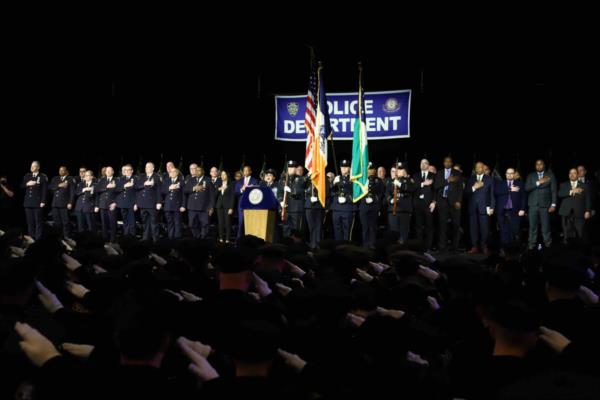
In an attempt to increase transparency and address concerns regarding racial profiling, a newly implemented law in New York City requires NYPD officers to record the race of individuals they question during police stops. The law aims to shed light on the frequency and nature of these encounters, as well as to ensure accountability and fair treatment within the city's law enforcement practices.
The decision to implement this law comes in the wake of nationwide protests against racial discrimination and police brutality, sparked by the tragic death of George Floyd and many other victims. Advocates argue that requiring officers to record the race of individuals stopped by the police will enable a more comprehensive understanding of potential biases in these interactions.
Under this legislative change, officers must document the race of the individuals they come into contact with, regardless of whether the encounter results in an arrest or the issuance of a summons. The recorded information is then submitted to the NYPD's Internal Affairs Bureau for review. It is important to note that this law does not impose any additional restrictions on officers' ability to conduct stops, but rather focuses on collecting data for analysis and evaluation.
Supporters argue that recording the race of individuals during police stops is an essential step towards recognizing and addressing racial disparities. By collecting comprehensive data, the hope is to identify patterns of disparate treatment and identify areas where policing practices may need improvement. This information could then be used to shape policies, training, and strategies that promote fairness and equity within the NYPD.
However, this law has faced criticism from those who argue that it could potentially hinder police officers' ability to do their jobs effectively. Some critics claim that the requirement to record race creates an unnecessary burden on officers, diverting their attention away from the immediate task at hand and potentially escalating tensions in already challenging situations.
In response to these concerns, officials have emphasized the importance of striking a balance between the need for transparency and the effective implementation of law enforcement. Police Commissioner Dermot Shea stressed that the collection of race data is intended solely for analytical purposes and will not interfere with officers' on-the-ground decision-making.
To ensure compliance and track progress, the NYPD plans to use the collected data to assess trends and patterns, improving departmental accountability and informing training programs. Additionally, the information gathered will be made publicly available on an annual basis to maintain transparency and accountability to the communities served by the department.
While it is still early to determine the exact impact of this new law on the city's policing practices, many view it as a step in the right direction towards reducing racial disparities and promoting fair treatment of all individuals. As the NYPD continues to implement this requirement, both supporters and critics will closely monitor its effects to gauge its effectiveness in combating racial profiling and ensuring equitable treatment within law enforcement.







